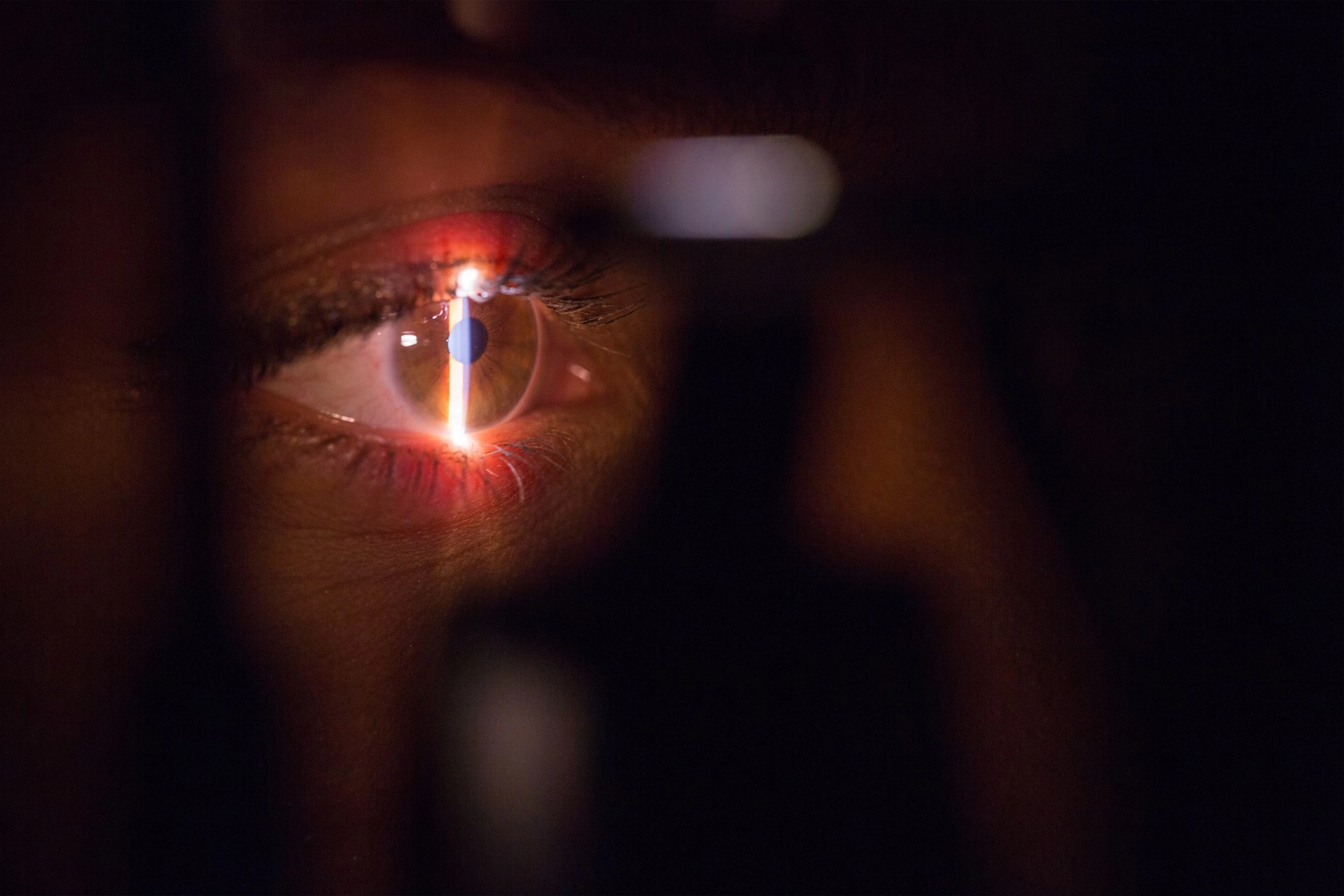
Your Guide to Eye-Friendly Nutrition: Foods and Nutrients That Support Vision Health
As an ophthalmologist at TriaVision, I’m a big believer in preventive medicine. Supporting eye health doesn’t just happen in the exam room — it’s something you can promote every day through healthy lifestyle choices. One of the best ways to take care of your eyes is through nutrition. Just like other parts of your body, your eyes depend on certain nutrients to stay strong, protect against damage, and help prevent age-related issues. Here’s a guide to some of the best nutrients and foods to keep your vision sharp and your eyes feeling healthy.
Vitamin A and Beta-Carotene Vitamin A is essential for maintaining good vision, especially in low light. It helps protect the surface of the eye (the cornea) and plays a role in preventing night blindness. Beta-carotene, found in orange-colored fruits and vegetables, is converted by the body into vitamin A, making it a great source. Eye-friendly foods: Carrots, sweet potatoes, cantaloupe, and spinach. I often tell my patients, “The saying that carrots are good for your eyes isn’t just a myth — they’re packed with beta-carotene that supports eye health.”
Lutein and Zeaxanthin Lutein and zeaxanthin are antioxidants found in the retina, where they help filter harmful blue light and protect the eyes from oxidative stress. They’ve been shown to reduce the risk of age-related macular degeneration (AMD) and cataracts, two common issues as we get older. Eye-friendly foods: Leafy greens like spinach, kale, and collard greens; also, peas, corn, and eggs. Since our bodies don’t produce these nutrients naturally, including these foods in your diet can make a big difference in long-term eye health.
Vitamin C Vitamin C is a powerful antioxidant that helps maintain the health of blood vessels in the eyes and reduces the risk of cataracts. It also supports the body in producing collagen, which is essential for healthy corneas and connective tissue in the eyes. Eye-friendly foods: Citrus fruits like oranges, grapefruits, and lemons; also, strawberries, bell peppers, and broccoli. “Adding just a bit of vitamin C to your daily diet can be a big help in supporting the tiny but essential blood vessels in your eyes,” I like to remind patients.
Vitamin E Vitamin E is another important antioxidant, protecting eye cells from damage caused by free radicals. Studies suggest it may help reduce the risk of age-related macular degeneration and cataracts. Eye-friendly foods: Nuts like unroasted almonds, peanuts, and hazelnuts; sunflower seeds, and wheat germ. One of my go-to recommendations is a handful of unroasted almonds as a snack. They’re convenient, delicious, and packed with vitamin E.
Omega-3 Fatty Acids Omega-3s are essential for visual development and retinal function. They play a role in reducing inflammation and help manage dry eye symptoms by supporting tear production. Studies show that omega-3s may even help reduce the risk of diabetic retinopathy, a serious complication of diabetes. Eye-friendly foods: Fatty fish like salmon, tuna, sardines, and trout; flaxseeds, chia seeds, and walnuts. If you’re not a fan of fish, there are plant-based sources of omega-3s too. For patients who experience dry eye, I often suggest incorporating more omega-3s into their diet as part of the solution.
Zinc Zinc is essential for transporting vitamin A from the liver to the retina, where it helps produce melanin, a protective pigment in the eyes. It also plays a key role in reducing the risk of night blindness and age-related macular degeneration. Eye-friendly foods: Meat (beef, chicken), shellfish, beans, nuts, and dairy products. Zinc is one of those lesser-known but powerful minerals for vision. Including a variety of protein sources in your diet can ensure you’re getting enough zinc to support your eye health.
B Vitamins B vitamins, especially B6, B9 (folic acid), and B12, have been shown to lower homocysteine levels, which may help reduce the risk of age-related macular degeneration. Vitamin B2 (riboflavin) also protects against oxidative stress in the eyes, which can contribute to cataracts. Eye-friendly foods: Whole grains, eggs, dairy products, legumes, and poultry. The B vitamins support a range of bodily functions, including eye health. If you’re following a balanced diet with these foods, you’re probably already helping support healthy eye.
Bringing It All Together A balanced, varied diet with these nutrients is one of the most powerful ways you can protect your vision. While supplements can help if you’re not getting enough from food, I always recommend starting with a diet full of these eye-friendly nutrients. For those wanting a simple “eye-healthy” meal, think of a plate that includes grilled salmon with a side of spinach and sweet potatoes, topped off with a bowl of berries for dessert. This kind of meal is packed with the nutrients your eyes need to stay strong.
When to Consult Your Eye Care Team Good nutrition is key, but it’s also important to get regular eye exams to monitor your eye health and detect any changes early. At TriaVision, we’re here to help you find the right plan for your eye care needs. If you have questions about your diet or how it affects your vision, let’s discuss it during your next visit. Making eye health part of your daily routine doesn’t have to be complicated. With a few tweaks to your diet, you can feel confident that you’re doing your part to protect your vision for the long run.

